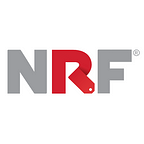4 ways retailers can use blockchain to their advantage
From artificial intelligence and conversational commerce to robots and the future of payments, technology is helping retailers improve the customer experience and create a competitive advantage. These topics will be covered in depth at the upcoming NRFtech 2018, where technology and innovation leaders will explore the latest retail tech and find new ways to connect with their digitally savvy customers.
While blockchain was developed a decade ago, it has been compared with the internet in terms of the impact it could have on business and society. Michael Carney, principal at venture capital firm Upfront Ventures, says blockchain and decentralized systems give retailers an opportunity to drive efficiency and establish an advantage. Here are his thoughts on what retailers need to know about blockchain and ways it can be put into use.
When thinking about the opportunity to implement blockchain, every retailer should seek to answer a few basic questions:
- What are my highest-leverage business problems that could benefit from greater trust, transparency and collaboration between stakeholders?
- Where and how am I using data in my business, who controls that data and what risks am I undertaking in its storage and utilization?
- What are my internal capabilities to test and implement these emerging technologies? If inadequate, what is my plan to bring in additional expertise?
At its core, blockchain is primarily exciting for its ability to enable greater trust, transparency and collaboration across constituencies that would otherwise struggle to achieve as much. Additionally, the use of “smart contracts” offers a never-before-possible means of automating and auditing transactions. For retail, these benefits can be realized from vendors to employees to customers.
A few areas stand out as those likely for retailers to see the greatest near-term benefit from embracing blockchain:
Supply chain and inventory management
As supply chain complexity increases, there’s an obvious opportunity to drive efficiency through greater collaboration and transparency between multiple constituencies including manufacturers, distributors, shipping carriers, insurers, importers, wholesalers and retailers. Knowing in real-time the exact source, location and state of all inventory in the system could be a game-changer for most businesses, particularly those dealing in perishable or luxury goods.
Unlike current systems, which rely on each constituent to maintain its own distinct and disconnected database — meaning limited and often delayed insight into the status of goods elsewhere in the system — blockchain facilitates real-time and trusted data sharing among constituents and can offer consensus about the true state of the system to all parties. That is especially transformative for categories that deal with counterfeiting or questions about social responsibility in sourcing and manufacturing. Layering on other technologies such as Internet of Things can further supercharge these impacts.
Payments and accounting
Blockchain enables the use of cryptocurrencies — sometimes also called tokens — as of a means of exchanging value or data. The most natural and widely adopted initial use case of these tokens today is for payments, specifically those for which the current financial infrastructure is either too inefficient or expensive to facilitate effectively. For example, cryptocurrencies offer real advantages for both cross-border payments and micro-payments.
Most attention is focused on consumer payment applications, where customers complete transactions in cryptocurrencies rather than traditional currencies. But these benefits are even more applicable today in the business context, where the size of payments and the large number of international transactions make cryptocurrency settlement an attractive proposition.
Additionally, the end-to-end data trail that blockchain provides will dramatically ease the accounting and finance burdens on organizations when applied to areas such as supply chain and inventory management. And relatedly, smart contracts will ease the hassles associated with collection and enforcement under traditional transaction structures — think instant collection and payment, automated refunds, automated insurance settlement and payout, and the like.
Loyalty and rewards
It’s a near-certainty that the loyalty programs of the future will be tokenized. Most loyalty programs today create frustration and friction rather than improved customer experiences. Tokens can dramatically simplify the tracking and managing of loyalty points, rewards cards and paper or digital coupons. Additionally, blockchain offers real-time liquidity, making points more easily swappable between consumers and across retailers. Retailers will still be able to reap the customer insight benefits, but in a more consumer-friendly way.
Retailers who choose to adopt blockchain could expand loyalty partnerships without adding complexity, driving increased brand awareness and program adoption while making it possible for smaller retailers to compete effectively with larger competitors. A welcome side effect for many program operators will be a reduction in the balance-sheet liabilities associated with unredeemed points and rewards.
Advertising and consumer data
Consumers are increasingly fed up with perceived abuses of their personal data and regulators are beginning to ask hard questions about data security. We should expect blockchain to underpin the consumer data and advertising systems of the future, enabling collaboration between stakeholders and reducing fraud while also giving consumers greater transparency and control over their own data — how it’s used and by whom. For retailers who collect and retain consumer data today, getting ahead of this coming shift by embracing open and transparent blockchain-based models will have a positive impact not only on operations, but at a public relations level as well.
Michael Carney is a principal at Upfront Ventures, a venture capital firm that invests in technology-led businesses in digital media, consumer internet and retail innovation.
Learn more about NRFtech 2018:
More about blockchain from NRF:
